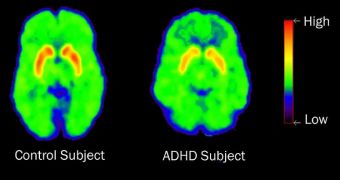With more than 500,000 children diagnosed with attention deficit hyperactivity disorder (ADHD) in the United States alone, finding more about the condition is rapidly becoming a national priority. Scientists now believe they may have found some of ADHD's genetic foundation.
Experts proposed a long time ago that that the deficit was also caused by genetic factors, not only those pertaining to nurture and society. But evidence to support this point of view have largely been lacking.
However, the new investigation was able to identify alterations in specific genes that are only obvious in people diagnosed with ADHD. As such, it could be that there's a causal link between these two aspects, the group proposes.
The genes that were found to be modified in the ADHD patients were involved in controlling important brain signaling pathways. As such, future drugs could be developed in such a manner that they would act directly on these pathways.
Such chemicals would provide an additional avenue of research for healthcare professionals to pursue in addressing ADHD with something else other than the drugs that are currently in use. These chemicals are easily abused, especially by teens, the US Food and Drug Administration (FDA) reports.
Details of the new investigation were published in the December 4 issue of the top scientific journal Nature Genetics. The team behind the work is based at the Children's Hospital of Philadelphia's Center for Applied Genomics (CAG), Science Daily reports.
“At least 10 percent of the ADHD patients in our sample have these particular genetic variants,” explains CAG director and study leader Hakon Hakonarson, MD, PhD.
“The genes involved affect neurotransmitter systems in the brain that have been implicated in ADHD, and we now have a genetic explanation for this link that applies to a subset of children with the disorder,” the expert goes on to say.
The new study was conducted on a group of 1,000 children who had been diagnosed with ADHD. The results of their genetic analysis were cross-referenced with those obtained from more than 4,100 kids who were healthy. The latter were used as controls.
“ADHD is a highly heterogeneous disorder, and separating out the different subgroups of genetic mutations that these children have is very important,” CHP child psychiatrist and co-first study author Josephine Elia, MD, says.

 14 DAY TRIAL //
14 DAY TRIAL //